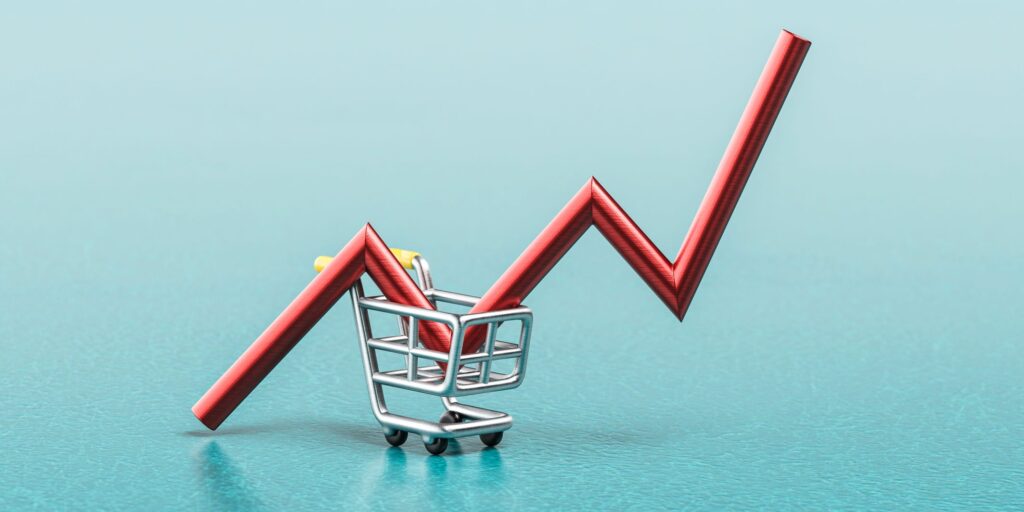- High inflation will stay for longer as commodity prices rallied again after falling for two years, World Bank Group says.
- The bank expects global inflation to jump by a solid percentage point by 2024 due to the flip-flop oil prices driven by geopolitical risks.
- The multilateral lender also predicts Gold to surge to a record high in 2024, then ease off a bit in 2025.
High inflation could be with us for a while as a key deflationary force wanes, the World Bank Group said,
The World Bank said in a report on Thursday that the two-year decline in global commodity prices has come to a halt, and an escalation of conflict in the Middle East has reversed the downward trend in inflation.
The report said commodity prices had dropped by roughly 40% between mid-2022 and mid-2023, bringing the global inflation rate down around by two percentage points over the past two years. However, the sector is moving in the opposite direction since the latter half of 2023.
"Global inflation remains undefeated," Indermit Gill, the senior president and chief economist of World Bank, said in the note, adding that the energy price shock would bring the world economy to a "vulnerable moment."
The economist foresees interest rates remaining higher than anticipated this year and next, with a projected 3% drop in commodity prices for 2024 and 4% for 2025.
But this sluggish decline will buoy commodity prices around 38% higher than pre-COVID averages, offering little relief for inflation-weary economies.
The conflict between Israel and Iran raised fresh concerns this month, and the Ukraine-Russia war has no end in sight. Both conflicts threaten global energy supplies and risk stoking more inflation.
The World Bank warned that a significant disruption could propel oil prices beyond $100 per barrel, hiking global inflation by almost a full percentage point in 2024.
"A striking divergence is emerging between global growth and commodity prices: despite relatively weaker global growth, commodity prices will most likely remain higher in 2024-25 than in the half-decade before the COVID-19 pandemic," the World Bank's deputy chief economist, Ayhan Kose, said.
That fear of lower growth and high inflation was on display in the US on Thursday, as first-quarter GDP came in much lower than expected even as consumer prices remained high in the quarter.
